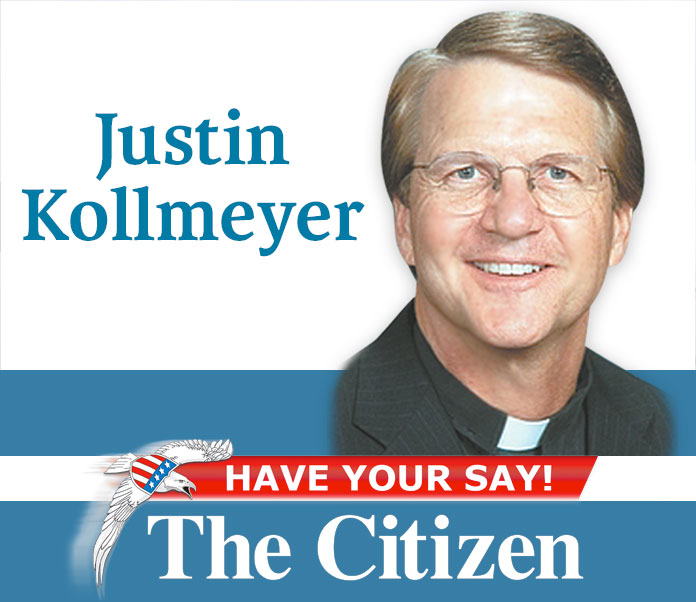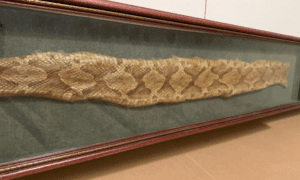Let me begin by clarifying what is sometimes confusing. Martin Luther was a Roman Catholic monk and university professor in Germany in the 16th Century (the 1500s). Martin Luther King, Jr., the great civil rights leader in the 1960s, was actually named after the former.
So, maybe you know something about Martin Luther, or maybe you don’t. We Lutherans obviously have studied extensively and know quite a bit about him.
And even though we have a strong prejudice for his “hero-status,” we also readily affirm with him that he was a fallen sinner in need of a Savior just like all of us. He certainly never intended a church to be named after him. That was actually done by his opponents.
It is in October every year that we remember again Luther’s legacy. In short, he changed Western Civilization forever and re-defined our relationship with God on the sole and strict basis of Grace Alone, Faith Alone, and Scripture Alone. Here’s a very short recap.
The only church at Luther’s time in this part of the world was the Roman Catholic Church. Luther was personally tormented with the church doctrine of his day that he must earn for himself the favor of God or come under His wrath and severe punishment.
The Church had developed the teaching that God was an angry judge, and that after one’s death there was a place called “purgatory,” where additional time had to be spent suffering and making further attempts to please and appease God in order to get to heaven. This doctrine was taught with fearful threats and frightening intimidations.
We must also understand that The Church was both the political and governmental power, and that most people were uneducated and simply had to do what they were told. The Bible also was only for the clergy and universities, and only translated into Latin.
Simultaneously, the Pope in Rome was building St. Peter’s Cathedral, the beautiful edifice which stands today. However, in order to help pay for this expensive construction, the Pope issued papers called “indulgences,” which were then sold to people with the promise that there were “extra merits” of Christ, Mary, and the disciples which could be transferred to people and their relatives in order to “buy out” years of purgatory or even hell.
In his study of the Bible, Martin Luther discovered that God is not an angry judge wanting to punish sinners, but rather a loving Father, who loves sinners enough that He sent His sinless Son Jesus to die to pay for all sin.
This unconditional love is called grace, and Luther declared that the only thing sinners need do is to have faith in this promise. He also declared that the only authority to establish truth and doctrine is Scripture.
With these Biblical insights, in response to the sale of indulgences, Martin Luther wrote out his 95 Theses (sentences), which challenged the sale of indulgences and asked for debate and an end to this practice.
So 502 years ago on October 31, 1517, Luther went to the church door in Wittenberg, Germany, where he was a Biblical professor, and nailed up these 95 Theses. The church door was the “social media” of his time, and everyone would see them.
Perhaps this might have only been a local issue, except for the fact that Gutenberg had invented the printing press, and The 95 Theses were mass produced and distributed throughout Europe, of course also reaching the Pope.
The Pope called for a trial where Luther was ordered “to recant,” but he did not. Instead he boldly declared these famous words, “I cannot and I will not recant … here I stand, I can do no other, so help me God. Amen”
So, with the posting of The 95 Theses the “fires” of the Protestant Reformation were set. Those following Luther were called “Lutherans,” which Luther never wanted. Then other Reformers followed and eventually we have the multi-faceted picture of Christianity today where relations between Catholics and Lutherans are much, much better.
But it was Martin Luther posting his 95 Theses 502 years ago this week that gave rise not only to corrected Biblical doctrine, but also to “lifting the common man” into a place of dignity, and releasing the human spirit to soar to new heights for the advancement of all civilization.
So, we Lutherans still hold and teach the Biblical Faith as re-discovered by Martin Luther, as do all Protestants and most Christians. Even the Roman Catholic Church later adopted many of the Biblical truths brought forth by Luther.
Here at Prince of Peace Lutheran Church in Fayetteville we are a church with emphasis on three things. First, we stand on the Biblical Truth of the Bible, with our faith in Jesus Christ as our Lord and Savior.
Second, we acknowledge the many contributions of Martin Luther to guide our faith and practice.
And third, we look toward the future to bring God’s changeless Word to our ever-changing world.
If this sounds like a church you’d be looking for, please give us a try.
[Find Kollmeyer at www.princeofpeacefayette.org.]











Leave a Comment
You must be logged in to post a comment.